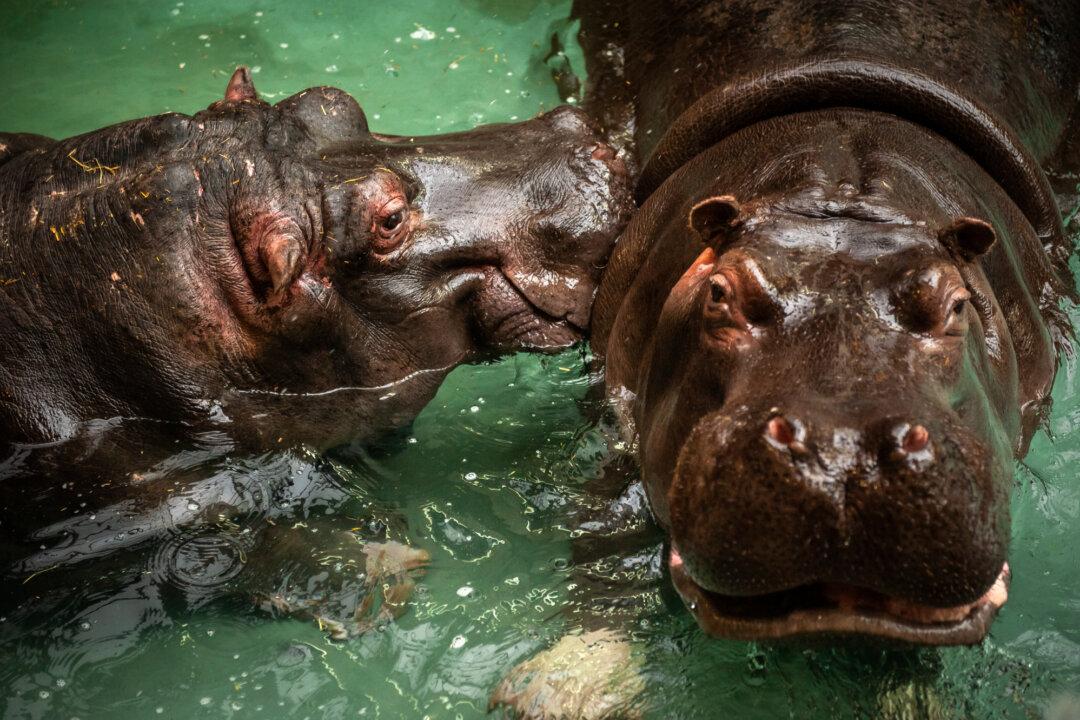Two hippopotamuses at Antwerp zoo in Belgium have reportedly contracted the CCP (Chinese Communist Party) virus despite showing no symptoms other than a “runny nose,” the zoo said in a statement on Dec. 4.
The Sciensano National Veterinary Laboratory confirmed the hippos, 14-year-old Imani and 41-year-old Hermien, tested positive for the virus. But the origin of the contagion remains unclear as none of the zookeepers have recently contracted the virus or shown any symptoms.






